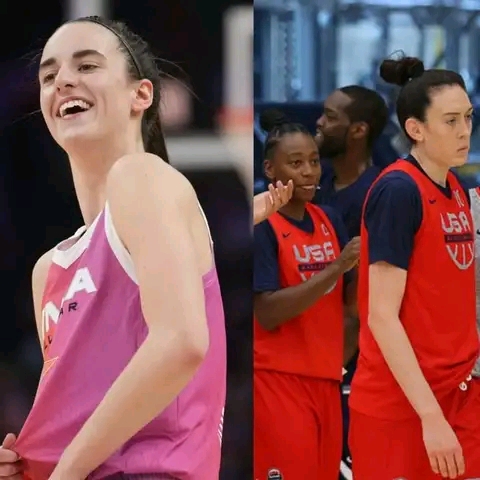NEWS
So Far Team USA Women’s Basketball Has Recorded The LOWEST ATTENDANCE Numbers Of The Entire Olympics!!! Critics Are Now Dragging The U.S. Olympic Committee For Not Adding The Box Office SuperStar Caitlin Clark To The Roster😯 #caitlinclark Read more:

Lin Dunn Calls for Brittney Griner to Be Expelled from U.S. Olympic Team – “You Disrespect the American Anthem, You Don’t Deserve to Represent This Country
In a controversial and impassioned statement, Lin Dunn, the renowned director of the Indiana Fever, has called for the expulsion of Brittney Griner from the U.S. Olympic team. Dunn’s comments have ignited a firestorm of debate across the sports community, centered around Griner’s recent actions and the broader implications for athletes representing their countries on the global stage.
Lin Dunn, a seasoned figure in women’s basketball, has been a prominent advocate for sportsmanship and national pride throughout her career. Her recent remarks come in response to a situation that has polarized public opinion. Dunn’s criticism targets Brittney Griner, a celebrated basketball player who has been an integral part of the U.S. national team and a major figure in the Women’s National Basketball Association (WNBA). The catalyst for Dunn’s call to action appears to be Griner’s recent protest during the American national anthem, an act that Dunn and many others interpret as a sign of disrespect.
In her statement, Dunn expressed her frustration, stating, “When you disrespect the American anthem, you don’t deserve to represent this country.” Dunn’s position underscores a belief that national symbols, such as the anthem, hold a profound significance that athletes should respect when they are in a position to represent their nation. This sentiment is rooted in a broader context where sports figures are often expected to embody national values and pride, particularly on international platforms like the Olympics.
Brittney Griner reflects on gut-wrenching moment she was detained in Russia in exclusive ’20/20′ special – ABC News
Brittney Griner, who made headlines not only for her impressive athletic skills but also for her outspoken advocacy on social issues, has faced backlash from various quarters. Her protest during the anthem was part of a larger movement where athletes have used their platforms to highlight systemic injustices and advocate for social change. While this form of protest has been defended by many as a legitimate exercise of free speech, it has also faced criticism from those who believe that such actions undermine the unity and honor associated with national representation.
Dunn’s call for Griner’s removal raises important questions about the balance between personal expression and national duty. On one hand, Dunn’s perspective reflects a belief in the sanctity of national symbols and the responsibility of athletes to uphold a sense of national pride. On the other hand, Griner’s actions are emblematic of a broader conversation about the role of athletes in addressing social issues and the extent to which personal beliefs should influence their professional roles.
The debate over Griner’s place on the U.S. Olympic team taps into larger discussions about patriotism, protest, and the expectations placed on public figures. In recent years, the intersection of sports and activism has become increasingly prominent, with athletes like Colin Kaepernick and Megan Rapinoe also facing scrutiny for their forms of protest. These situations often highlight the tension between individual rights and collective expectations, especially in contexts where national symbols and values are involved.
Indiana Fever remove interim tag from general manager Lin Dunn
As this debate unfolds, it is essential to consider the diverse perspectives that contribute to the discussion. Athletes like Brittney Griner have used their visibility to challenge societal norms and bring attention to pressing issues, which has led to significant dialogue and, at times, controversy. Conversely, figures like Lin Dunn represent a viewpoint that emphasizes the importance of unity and respect for national symbols, which many argue is crucial for maintaining a sense of national identity and pride.
Ultimately, the question of whether Brittney Griner should remain on the U.S. Olympic team is not just about one athlete’s actions but about how society negotiates the complex interplay between personal expression and national representation. As the discourse continues, it will be important to engage with the nuanced arguments from all sides and consider the broader implications for sports and national identity.
In conclusion, Lin Dunn’s call for Brittney Griner’s expulsion from the U.S. Olympic team has sparked a critical conversation about respect, protest, and the role of athletes in representing their country. While opinions on this matter vary widely, it is clear that the debate touches on fundamental issues of patriotism and personal conviction, highlighting the evolving landscape of sports and activism in contemporary society.












